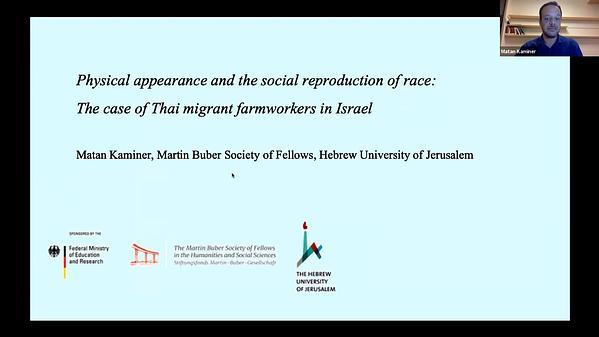Would you like to see your presentation here, made available to a global audience of researchers?
Add your own presentation or have us affordably record your next conference.
keywords:
welfare
labor and work
capitalism
The last decade has witnessed an explosion in the number of books and articles dedicated to forecasting the transformations, futures, and ends of work. In Give a Man a Fish, James Ferguson (2015) marshalled his ethnography of southern Africa to offer a radical vision of a sweeping move from productivism toward a new “politics of distribution.” Here, he argued, one's worth, deservingness, and social personhood would not be contingent on the marginal value of one's productivity but on the fundamental right to a share in the collective patrimony of post-industrial society. Universal basic income trials, referenda on citizen's income schemes, and the growth of public interest in policy proposals like Andrew Yang's “freedom dividend” suggest that distributivism has become a thinkable, even desirable politics. And yet, around the world, there is a curious persistence to work and its ethics. Against the threat of technological unemployment, one finds no shortage of exhortations to produce•to produce faster, to produce more. These productivist imperatives are typically bound to broader moral frameworks, showing work to be central not only to how people “make a living” but conceive of and achieve “a life worth living” (Narotzky and Besnier 2014). Beyond its moral valences, productivism is wound tightly with subjectivity, making both work and the refusal to work constitutive elements of identity, selfhood, and belonging (Lane 2011; Ong 1987; Weeks 2011). Moreover, work and its ethics continue to organize our relationships and our time (Thompson 1967), structuring and sustaining social institutions, the rhythms of everyday life, and the phases of the lifecycle (Lynch and Mains 2016). For a world tilting toward its distributivist possibilities, we seem unable to exorcise productivist desires, longings, anxieties, and modes of living from our increasingly technologized societies. This roundtable draws together ethnographers of the United States, Japan, China, Norway, and Kyrgyzstan. Their work examines a variety of topics, including the tension between distributivist and productivist logics in rural secondhand markets, neoliberal corporate restructuring, social democracy, “social parasitism”, and the search for employment in "crisis economies." By bringing creating space for a virtual dialogue, this roundtable aims to examine the curious persistence of productivism at a moment when work as we have known it appears to face significant challenge, curtailment, or even wholesale abolition.

